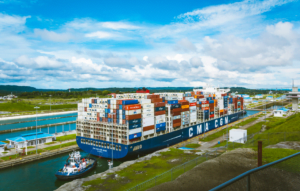Do you feel overwhelmed with outsourcing your logistics operations to a reliable Third-party logistics provider, a 3PL? As a business owner or manager, the term 3PL may have been thrown around in your daily operations. However, selecting the perfect provider can be an enigmatic challenge, particularly for those new to this industry. Fear not, for we are here to assist you in your quest to find Singapore’s ideal Third-party logistics provider amidst the perplexing choices available.
In today’s cut-throat business environment, having a robust logistics strategy is crucial to keep up with customers’ ever-increasing demands. Even with managing logistics operations in-house, managing logistics operations in-house can prove to be costly, time-consuming, and arduous, particularly for small and medium-sized enterprises. By outsourcing to a third-party logistics provider (3PL), you can focus on your core business activities, cut costs, and enhance operational efficiencies.
With a vast array of providers available in the market, choosing the right 3PL partner can be intimidating. Selecting a partner who can meet your business needs and provide the requisite expertise, reliability, and flexibility is crucial. In the following sections, we’ll expound on the essential factors to consider when selecting Singapore’s ideal Third-party logistics provider.
What is 3PL?
Third-party logistics, commonly known as 3PL, refers to outsourcing logistics and supply chain management functions to a specialized external service provider. In the realm of 3PL, companies entrust activities such as transportation, warehousing, distribution, and fulfilment to a third-party logistics provider. This strategic collaboration allows businesses to streamline operations, reduce costs, and enhance efficiency as 3PL providers leverage their expertise and resources to optimize the entire supply chain process. The partnership with a 3PL entity enables companies to focus on their core competencies while benefiting from the logistical proficiency and scalability the external logistics expert offers.
Assess Your Business Needs
You must first evaluate your company’s demands to choose the best third-party logistics supplier. You need specialized logistics services, such as shipping, warehousing, inventory control, order fulfilment, and distribution. Decide on your company’s objectives, such as cutting expenses, boosting productivity, upgrading customer service, and reaching out to new markets. You can focus your search on the best 3PL provider to fit your demands by being aware of your company’s needs.
Evaluate the Provider’s Capabilities
After determining your company’s requirements, it’s time to assess the 3PL provider’s skills. Choose a service provider with expertise in your industry’s logistics needs and a track record of offering high-quality services. Verify that the service provider has the facilities, equipment, and personnel required to manage your logistics operations effectively. To ensure the provider can satisfy your company’s needs, consider the supplier’s geographic reach, the size of their storage facilities, and their transportation infrastructure.
Check the Provider’s Service Level Agreement (SLA)
The service level agreement (SLA), which describes the Third-party Logistics Provider’s duties, performance metrics, and scope of services, is an essential legal document. Make sure to carefully check the SLA to make sure it complies with the objectives and needs of your company. Look for provisions in the SLA that address service guarantees, fines for non-compliance, dispute resolution processes, and termination guidelines. To keep you informed about your logistics operation’s condition, ensure the SLA includes routine reporting and communication provisions.
Understanding Your Business Needs
The first step in choosing the right 3PL provider is to assess your business needs. Take the time to evaluate your current logistics processes and identify improvement areas. Consider factors such as order volume, seasonal fluctuations, special handling requirements, and geographical reach. By understanding your specific needs, you can better align them with the capabilities of potential 3PL providers.
Evaluating the Provider’s Expertise
When considering a 3PL provider, assessing their expertise in handling your industry’s specific requirements is essential. Seek out service providers who possess a track record of successfully collaborating with enterprises that bear resemblance to your own. They should deeply understand your industry’s regulations, compliance standards, and best practices. A knowledgeable 3PL provider will be able to offer valuable insights and solutions to optimize your supply chain.
Assessing Technological Capabilities
Technology plays a critical role in logistics operations in today’s digital age. Evaluate the technological capabilities of the 3PL providers you are considering. Do they have robust warehouse and transportation management systems (WMS) systems (TMS)? Can they provide real-time tracking and visibility of your shipments? A technologically advanced 3PL provider can offer efficient and transparent logistics solutions.
Warehouse Facilities and Location
The location and condition of a 3PL provider’s warehouse facilities are crucial factors. Evaluate their warehouse infrastructure, storage capacity, and handling capabilities. Additionally, consider the proximity of their facilities to key transportation hubs, such as ports and airports. A strategically located 3PL provider can help reduce transportation costs and improve delivery speed.
Transportation Network and Coverage
An extensive transportation network is essential for a 3PL provider to ensure your goods’ smooth and timely delivery. Assess the provider’s transportation capabilities, including the modes of transport they offer (road, air, sea, rail) and the regions they serve. A well-connected 3PL provider with a wide coverage area can help.
Scalability and Flexibility
As your business grows, it’s important to choose a 3PL provider that can scale its operations to meet your changing needs. Assess the provider’s ability to handle fluctuations in order volume, seasonal demands, and unexpected surges. Additionally, consider their flexibility in accommodating your unique requirements, such as special packaging or customized order fulfillment. A flexible and scalable 3PL partner will ensure that your logistics operations remain efficient and adaptable.
Service Level Agreements
When entering into a partnership with a 3PL provider, it’s crucial to establish clear service level agreements (SLAs). SLAs outline the specific performance metrics and expectations for the provider. They cover aspects such as order accuracy, on-time delivery, inventory accuracy, and customer support response times. Make sure to discuss and negotiate the SLAs with potential providers to ensure they align with your business requirements.
Security and Risk Management
Real-time tracking and accurate reporting are essential for effective logistics management. Evaluate the tracking capabilities of potential 3PL providers. Can they provide detailed visibility of your shipments at every stage? Are comprehensive reporting tools provided by them to monitor essential performance metrics (KPIs) and scrutinize data? A 3PL provider that offers comprehensive tracking and reporting capabilities empowers you to make informed decisions and optimize your supply chain.
The security and risk management practices of a 3PL provider are of utmost importance, especially when handling valuable or sensitive goods. Inquire about their security measures, such as surveillance systems, access control, and insurance coverage. Additionally, assess their risk management protocols, including disaster recovery plans and contingency measures. A reliable 3PL provider will prioritize the safety and protection of your goods throughout the supply chain.
Tracking and Reporting Capabilities
Real-time tracking and accurate reporting are essential for effective logistics management. Evaluate the tracking capabilities of potential 3PL providers. Can they provide detailed visibility of your shipments at every stage? Are comprehensive reporting tools provided by them to monitor essential performance metrics (KPIs) and scrutinize data? A 3PL provider that offers comprehensive tracking and reporting capabilities empowers you to make informed decisions and optimize your supply chain.
Pricing and Cost Structure
The consideration of pricing plays a vital role when selecting a third-party logistics (3PL) provider. While it is crucial not to make cost the exclusive deciding element, it is essential to assess the pricing framework of the provider and ensure that it harmonizes with your budgetary considerations.
Request detailed pricing proposals and compare them among different providers. Be mindful of any hidden costs or additional fees that may impact your overall logistics expenses. Strike a balance between cost and quality to find the best value for your business.
Home Shifting – Domestic
Moving homes, though an exciting prospect, can be a daunting task. The logistics involved in packing, transporting, and unpacking belongings can often overwhelm individuals and families. However, the emergence of professional home-shifting services has revolutionized the way people approach domestic relocations. We will explore the invaluable role of Howely Logistics Team in facilitating seamless home-shifting experiences for customers.

How Howely Logistics Can Help with Your Home Shifting Decisions?
Efficient Packing and Organization
Howely Logistics in the home shifting industry, is well-versed in packing. They understand the importance of organizing belongings efficiently to minimize the risk of damage during transportation. From fragile items to furniture, each possession is carefully wrapped, labelled, and packed using the appropriate materials, ensuring that everything arrives at the destination intact.
Customized Solutions
No two home relocations are identical, and the Howely Logistic Team recognize the need for personalized solutions. Professional home shifting services offer tailored packages to meet each customer’s unique requirements. Whether a small apartment or a sprawling house, Howely will devise plans that optimize space, time, and resources, ensuring a smooth transition for the client.
Timely and Reliable Transportation
One of the primary challenges in domestic home shifting is coordinating the transportation of goods. Howely Logistics excels in planning and executing timely and reliable transportation services. They leverage a network of trusted carriers, ensuring that belongings reach the new destination as per the agreed schedule. This reliability alleviates stress for customers and allows them to focus on settling into their new homes.
Cost-Effective Solutions
Contrary to common misconceptions, hiring logistic experts for home shifting can be cost-effective. These professionals have the expertise to optimize resources, minimize waste, and negotiate favourable rates with transport providers. By outsourcing the logistics, customers can avoid unexpected expenses and benefit from a transparent and well-defined cost structure.
Reducing Stress for Customers
Home shifting can be emotionally and physically draining for individuals and families. Logistic experts understand the emotional aspect of the process and strive to make it as stress-free as possible. By taking care of the intricate details of the move, from packing to unpacking, logistic experts allow customers to focus on the excitement of starting a new chapter.
Insurance and Safety Measures
Accidents and unforeseen events can occur during transportation. Howely Logistics prioritize the safety of belongings by implementing robust insurance coverage and safety measures. In the rare event of any damage or loss, customers can have peace of mind knowing that their possessions are protected, and the Howely Logistics Team will take appropriate measures to address the situation.
In-home shifting, domestic logistics experts play a pivotal role in transforming a potentially stressful experience into a well-organized and efficient process. By leveraging their expertise in packing, transportation, and organization, logistic professionals contribute significantly to the success of domestic relocations. As customers increasingly recognize the benefits of outsourcing these logistical challenges, the home-shifting industry continues to evolve, providing seamless and reliable services to those embarking on moving to a new home.
The Advantages of Air Freight in Modern Logistics
In an interconnected global landscape, the need for swift and efficient transportation of goods has never been more critical. Enter air freight is a dynamic and agile logistics solution that has revolutionized how businesses move their products across borders. We will explore the myriad benefits of air freight and how this service plays a pivotal role in meeting the evolving demands of the modern market.

Speed and Timeliness
Air freight is renowned for its unparalleled speed. Unlike traditional transportation methods such as sea or road freight, air cargo can cover vast distances in a matter of hours. This rapid transit time is a game-changer for businesses looking to reduce lead times, respond to market demands quickly, and stay ahead of the competition.
Global Reach
Air freight provides unparalleled global reach, connecting continents and countries seamlessly. This expansive network allows businesses to access international markets efficiently. Whether a small parcel or a large shipment, air freight ensures that goods can reach any corner of the world, opening up new opportunities for businesses to expand their reach and customer base.
Reliability and Predictability
Air freight schedules are highly reliable and predictable. Airlines adhere to strict departure and arrival times, providing businesses with a dependable logistics solution. This reliability is crucial for industries with time-sensitive shipments, such as perishable goods, pharmaceuticals, and high-tech products, where delays can have significant financial implications.
Enhanced Security
Airports have stringent security measures in place, ensuring the safety and security of air cargo. This heightened security is a major advantage for businesses transporting high-value goods or sensitive materials. With advanced screening processes and surveillance, air freight provides a secure and monitored environment for the transportation of valuable assets.
Reduced Transit Risk
Compared to other modes of transportation, air freight is associated with lower transit risk. The risk of damage or loss during transit is minimized due to the streamlined and controlled processes involved in air cargo handling. This reliability is particularly appealing to businesses seeking a logistics solution that prioritizes the safety of their products.
Optimized Inventory Management
The swift transit times of air freight contribute to more efficient inventory management. Businesses can maintain lower inventory levels, reducing holding costs and increasing cash flow. With the ability to restock quickly and respond to market fluctuations, air freight enables businesses to operate with leaner and more agile supply chains.
Environmental Considerations
While air freight is associated with carbon emissions, advancements in aircraft technology are making this mode of transportation more environmentally friendly. Newer, fuel-efficient aircraft contribute to a reduced carbon footprint per ton-mile, aligning with the growing emphasis on sustainable logistics practices.
Air freight stands as a beacon of efficiency in the fast-paced world of modern logistics. Its speed, global reach, reliability, and security make it an indispensable tool for businesses looking to navigate the complexities of international trade. As the demand for rapid and reliable transportation solutions continues to grow, air freight remains a key player in driving the success of businesses across diverse industries. In an era where time is money, air freight proves itself as the catalyst for streamlined, efficient, and responsive supply chains.
The Strategic Advantages of Sea Freight in Logistics
In the intricate web of global trade, sea freight emerges as a stalwart, providing businesses with a reliable and cost-effective means of transporting goods across oceans and continents. This article delves into the multifaceted advantages of sea freight, illuminating how this maritime logistics solution plays a pivotal role in meeting the diverse needs of businesses and customers alike.

Cost Efficiency and Scalability
Sea freight is renowned for its cost efficiency, especially for large or bulky shipments. The economies of scale associated with transporting goods in massive containers contribute to significantly lower transportation costs per unit. This makes sea freight an attractive option for businesses looking to optimize their supply chain costs and maximize their overall profitability.
High Capacity and Versatility
Sea freight vessels boast substantial cargo capacities, allowing for the transportation of diverse goods, including oversized or heavy items. From automobiles to machinery, sea freight accommodates a broad range of cargo types. This versatility makes it an ideal choice for industries dealing with diverse and specialized shipments, offering ample space to meet the unique requirements of different businesses.
Environmental Sustainability
Compared to some other modes of transportation, sea freight is often considered a more environmentally sustainable option. Modern cargo vessels are designed with fuel efficiency and reduced emissions in mind, aligning with the global push towards environmentally conscious logistics practices. This makes sea freight an appealing choice for businesses seeking to minimize their ecological footprint in the transportation of goods.
Reliability and Stability
Sea freight schedules are known for their stability and reliability. While transit times may be longer than air freight, maritime routes’ predictability allows businesses to plan and coordinate their supply chains effectively. This reliability is particularly valuable for businesses with less time-sensitive cargo, enabling them to maintain efficient inventory levels and reduce the risk of stockouts.
Global Connectivity
Sea freight provides extensive global connectivity, linking major ports across the world. This vast network opens up opportunities for businesses to access diverse markets and establish international trade relationships. With regular and well-established sea routes, businesses can rely on sea freight to connect with suppliers, manufacturers, and customers on a global scale.
Reduced Risk of Damage
The stability of sea vessels translates into a lower risk of cargo damage during transit. Unlike air or road transportation, sea freight experiences fewer vibrations and shocks, minimizing the likelihood of goods being jostled or damaged. This is especially advantageous for businesses dealing with delicate or sensitive products, ensuring that goods arrive at their destination in optimal condition.
Sea freight stands as a cornerstone in the logistics landscape, offering businesses a strategic and cost-effective solution for global transportation needs. Its cost efficiency, high capacity, environmental sustainability, and reliability make it a go-to choice for a wide array of industries. As businesses navigate the complexities of international trade, sea freight emerges as a dependable ally, facilitating the seamless movement of goods across oceans and fostering a global marketplace that thrives on efficiency and connectivity.
3PL in a nutshell
Making the correct 3PL supplier selection can completely transform your company. You may save expenses, increase productivity, and improve customer service with the aid of a dependable and knowledgeable 3PL partner. Consider your company’s needs, the supplier’s capabilities, and the service level agreement when choosing a 3PL provider in Singapore to guarantee a suitable fit. You can choose the best third-party logistics partner with these considerations in mind to assist you in achieving your company objectives and staying one step ahead of the competition.
Visit https://howely.com.sg/ for more information on how we can assist you in optimizing your logistics operations.




